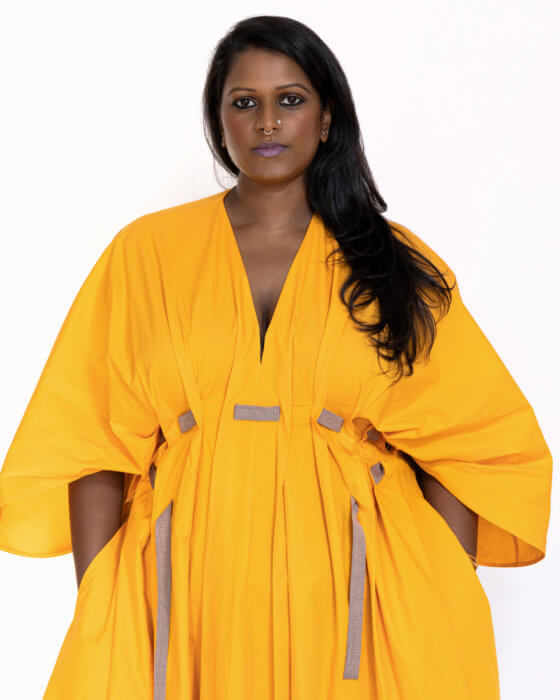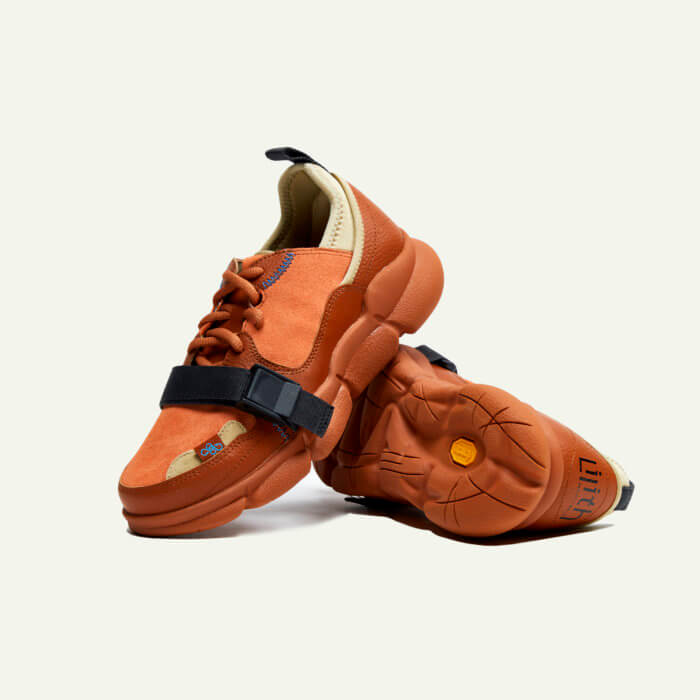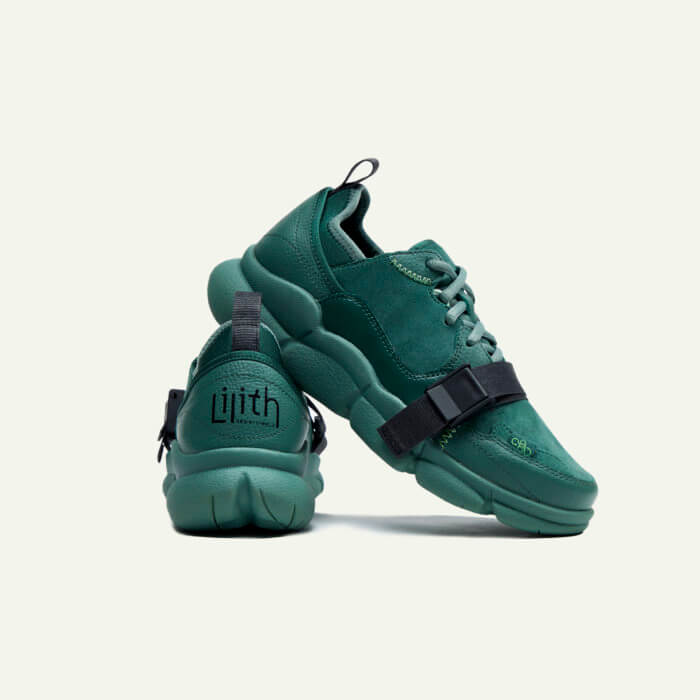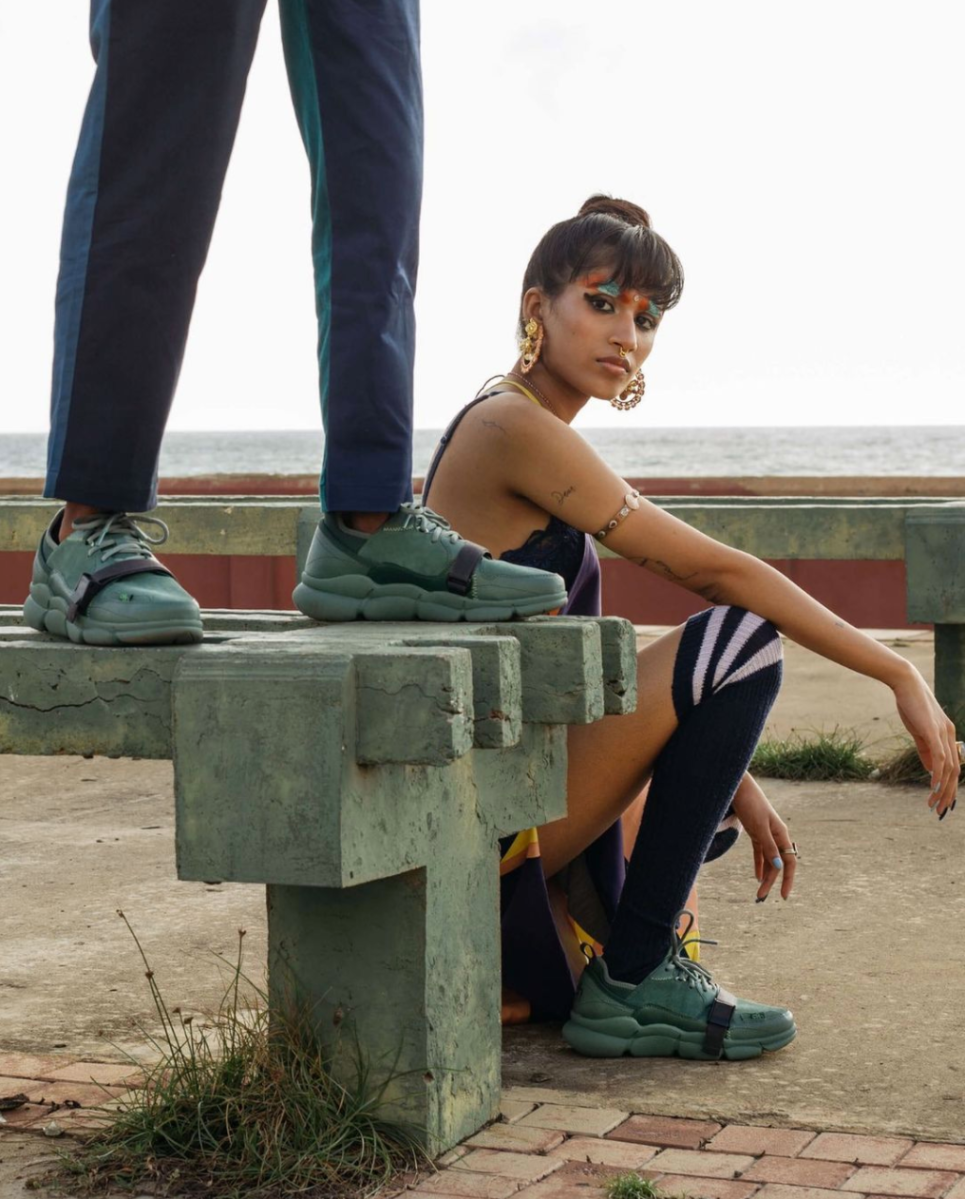Sarah Sukumaran of Elmhurst is representing women, femmes and underrepresented people in the sneaker community with the launch of her footwear brand Lilith NYC.
Sukumaran, who was previously director of product in analytics at Nike for two years, launched Lilith NYC in February of 2020 as a response to the lack of sneakers available for female consumers.

Lilith NYC brings together design with functionality in a sneaker silhouette that is rooted in performance. The brand champions women and femmes to explore and express their style, gender and sexuality across a spectrum.
Its debut silhouette, the Caudal Lure, is made with premium materials such as pebbled leather, suede and neoprene enveloping the upper, while a lightweight vibram sole rounds out the design. It is available on Lilith NYC for $225 and comes in women’s sizing.

“It’s super lightweight and feels like you’re walking on clouds. We spend so much time on our feet — we never have comfort and we have that breaking-in period, which results in blisters,” Sukumaran said. “There’s cushioning on the back heel of the shoe and the sole is great for shock absorption.”
The Caudal Lure comes in two colorways — Concrete Jungle Green and Amberlou Brick, paying homage to the grit of Queens and the island life of Tamil culture.

Sukumaran was born and raised in Elmhurst and her parents are Tamil refugees from Sri Lanka who immigrated to the U.S. in the 1980s.
“One of the major themes when developing the brand was the juxtaposition of Queens and its concrete buildings, and the lushness of Sri Lanka. It’s two different worlds and I wanted to bring that together,” Sukumaran said.
At the age of 8, Sukumaran fell in love with sneakers and recalled hanging out with the guys on the basketball court that wore the “cool kicks” and watching sports on TV.
“It was growing up in Queens that inspired sneaker culture. I always say sneaker culture is Queen’s culture,” Sukumaran said. “I was obsessed with two pairs of kicks, and one of them was the Nike Air Way Up.”
Her love for sneakers led to a career at Nike, where she worked in tech designing software. In 2015, Sukumaran heard from women sneakerheads demanding more inclusive sizing, better colorways and availability of products.
“When you looked across the board from the legacy players, there was a slow move in terms of progress, despite a lot of folks being vocal,” Sukumaran said. “When you’re in a data role and reading all of these reports and industry reports, you hear time and time again that women outpace men in sneaker sales, and despite the data, the industry hasn’t shifted.”
She began to think about doing something in the women’s space, and that’s when she came up with Lilith NYC and purchased the domain.
“Lilith was Adam’s first wife. We always hear the story of Adam and Eve, and Lilith was written out of biblical stories because she chooses not to be submissive to Adam and is banished from the Garden of Eve,” Sukumaran said. “As a woman in tech and a woman in footwear, it just made sense to name the brand after someone who was historically written out. I always say women’s contributions in those fields have historically been attributed to men, and this was the opportunity to name a brand that put women first.”

In February of 2020, Sukumaran left Nike just before COVID hit New York City. Though it wasn’t the greatest timing to launch a company, Sukumaran continued to work, communicating with people remotely across different time zones.
“We didn’t have the luxury of touching things in hand and oftentimes it was a picture of a swatch the factory would send us. It’s not the traditional design process and you want to be on the floor. We didn’t get that during the first year,” Sukumaran said.
With a background in technology and no experience in footwear development, Sukumaran learned throughout the process of how to build a brand and footwear.
When it comes to finding out what women want in a sneaker, Sukumaran listens to women-led podcasts for sneakerheads that discuss the shortfalls of the footwear industry, reads reports on sales projections and talks to women on social media.
“Women want the comfort of a performance shoe, which is typically a running shoe, but no one is wearing a running shoe to dinner. So, how do you introduce performance into lifestyle? You build performance into lifestyle shoes,” Sukumaran said.
While Lilith NYC is solely online, Sukumaran says the company is figuring out how to open a store, so customers can try on the sneakers and find their right size.
What sets Lilith NYC apart from major industry footwear companies such as Nike and Adidas, is the fact that they’re digitally native and are working directly with customers, Sukumaran said.
“They have always sold their product through a middle man like Foot Action and we work directly with customers and that gives us a huge line of insight that major brands don’t necessarily have. Also, since we are smaller, we can move quicker,” Sukumaran said.
In terms of representation and inclusivity in the footwear industry, Sukumaran is already making a positive impact with Lilith NYC, as their campaign features people of color which is important and core to their storytelling.

As women haven’t been part of the narrative and brands were built around male athletes, Sukumaran says they’re changing the paradigm and conversation completely from what other brands are doing.
“I wasn’t seeing us in campaigns. Oftentimes we drive sneaker sales and sneaker culture, but we’re not being reflected in how sneaker culture gets shown up in the world,” Sukumaran said. “It’s unfortunate that other brands haven’t caught up in a more intentional way around that, and that’s why Lilith exists.”



































